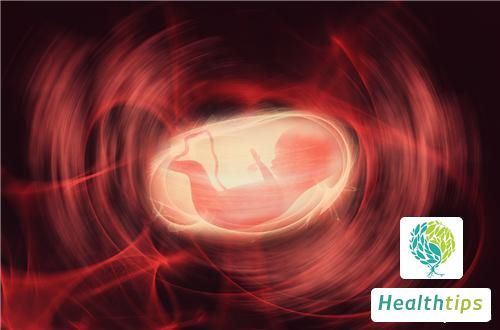The maturity level of the placenta is generally divided into four grades: 0, I, II, and III. Grade 0 typically refers to the early and mid-stages of pregnancy, often before 28 weeks of gestation. Grade I generally refers to the period between 29-36 weeks of pregnancy, when the placenta begins to mature. The placental parenchyma particles are relatively coarse, and the echoes produced are relatively strong. Grade II basically indicates a mature placenta, with the placental parenchyma particles becoming thicker and the appearance of short columnar echoes. Irregular striped echoes may appear in the basal layer of the placenta. Grade III represents a fully mature placenta that is tending towards aging.
 Situation 1: In the early stages of pregnancy, the clinical concern is that the function of the placenta may deteriorate with time, meaning that the longer the pregnancy extends beyond its due date, the greater the possibility of placental aging. If the placenta ages, it may not provide sufficient nutrients and oxygen to the fetus, potentially leading to oxygen deprivation. If the fetus experiences oxygen deprivation, it may be susceptible to intrauterine death or brain lesions after birth.
Situation 2: It is not necessarily better for the placenta to be overly mature. It is important that the placental maturity corresponds to the gestational age of the pregnant woman, as the placenta is crucial for supplying nutrients to the fetus. A placenta that matures prematurely may indicate rapid aging, which can lead to insufficient oxygen supply to the fetus and even delayed growth and development. Towards the late stages of pregnancy, the placenta tends to become fully mature.
Situation 3: In the late stages of pregnancy, the function of the placenta declines as the fetus matures. Placental aging indicates a significant reduction in placental function, which may affect fetal development. If the fetus has reached maturity, early delivery may be necessary. Placental aging refers to a decrease in placental function, which can result in oxygen deprivation, malnutrition, delayed development, fetal distress, and even fetal death, stillbirth, or neonatal asphyxia. The long-term consequences can include brain cell necrosis, developmental delays, and ultimately intellectual disabilities in the child.
Situation 1: In the early stages of pregnancy, the clinical concern is that the function of the placenta may deteriorate with time, meaning that the longer the pregnancy extends beyond its due date, the greater the possibility of placental aging. If the placenta ages, it may not provide sufficient nutrients and oxygen to the fetus, potentially leading to oxygen deprivation. If the fetus experiences oxygen deprivation, it may be susceptible to intrauterine death or brain lesions after birth.
Situation 2: It is not necessarily better for the placenta to be overly mature. It is important that the placental maturity corresponds to the gestational age of the pregnant woman, as the placenta is crucial for supplying nutrients to the fetus. A placenta that matures prematurely may indicate rapid aging, which can lead to insufficient oxygen supply to the fetus and even delayed growth and development. Towards the late stages of pregnancy, the placenta tends to become fully mature.
Situation 3: In the late stages of pregnancy, the function of the placenta declines as the fetus matures. Placental aging indicates a significant reduction in placental function, which may affect fetal development. If the fetus has reached maturity, early delivery may be necessary. Placental aging refers to a decrease in placental function, which can result in oxygen deprivation, malnutrition, delayed development, fetal distress, and even fetal death, stillbirth, or neonatal asphyxia. The long-term consequences can include brain cell necrosis, developmental delays, and ultimately intellectual disabilities in the child.




















